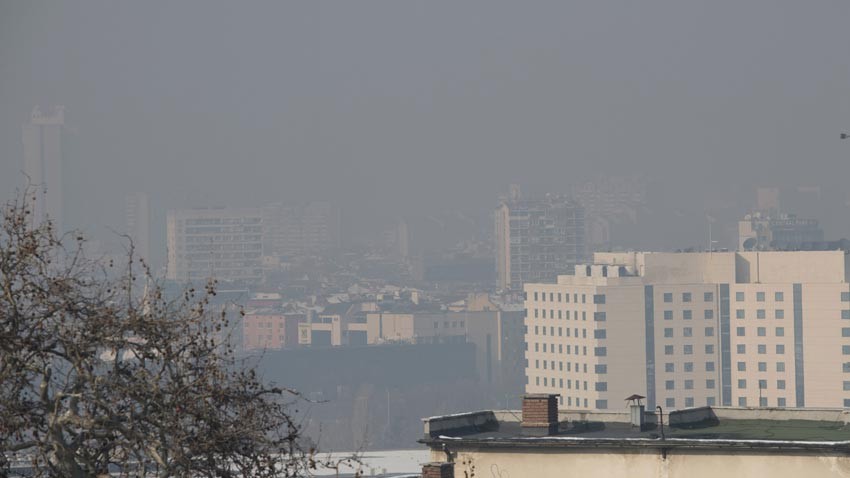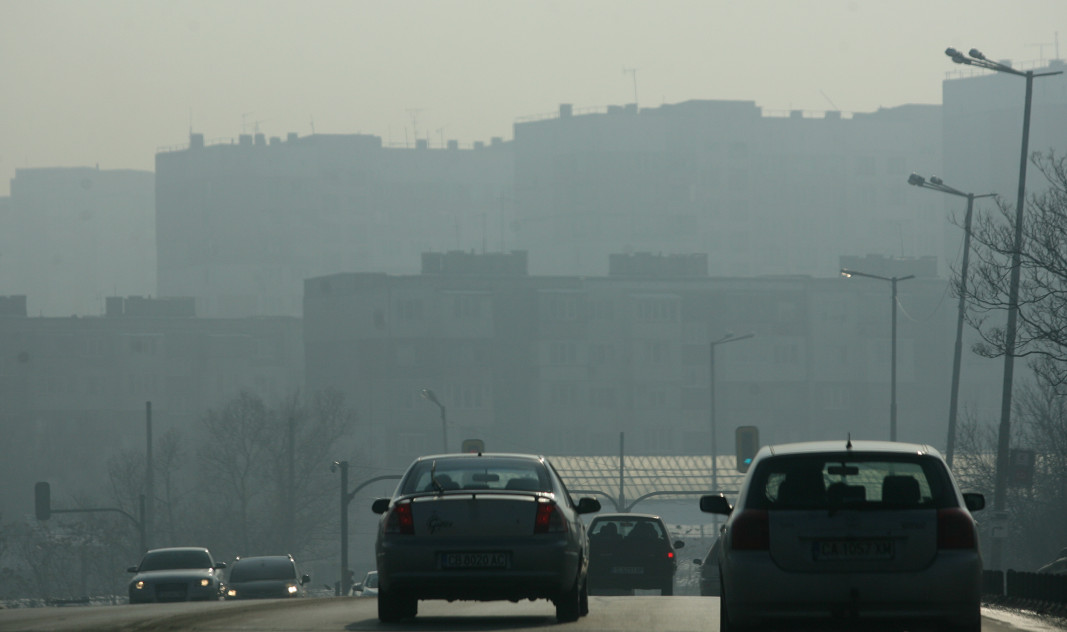Respiratory problems is the first thing that springs to mind when we talk about air pollution, but if we take a closer look at what is behind the high mortality rate in the modern world, we shall see that the principal cause is particulate matter.
Every year more than 400,000 people in the EU die prematurely because of air pollution, the European Environment Agency says, in Bulgaria their number is 15,000 (according to data of the World Health Organization). WHO statistics globally are even more shocking – 7 million a year.

“One of the most serious publications in the European Heart Journal for last year is an analysis of the role of pollution, and especially particulate matter in cardiovascular disease, and that is no coincidence,” says cardiologist Prof. Dr. Ivo Petrov, MD, National Consultant in Invasive Cardiology. On the basis of a multitude of studies the publication proves that:
“Particulate matter pollution is one of the biggest risk factors for the early development of cardiovascular diseases, alongside diabetes mellitus, smoking, high cholesterol levels and arterial hypertension. Millions of people die every year of cardiovascular diseases caused by air pollution. Studies in Utah, USA have shown that the higher particulate matter levels, the higher the number of heart attacks and strokes.”
WHO experts say that particulate matter, and especially PM 2.5 (under 25 microns), which when inhaled makes it way into the blood circulatory system along with harmful gases, has a toxic effect on the heart, damages blood vessels, causes heart attacks, strokes and diseases of the kidneys and the pancreas. But while smoking and drinking alcohol are a matter of personal choice, air pollution is a question of public responsibility.

Particulate matter is the result of the burning of solid and liquid fuels, industrial activity etc. In Bulgaria there are two principal sources of pollution – home heating (40 percent) and transport (60 percent). Road traffic alone accounts for 40 percent of all particulate matter pollution. The highest permitted levels within the EU are 25 micrograms per cubic metre, though the WHO cautions that they must not exceed 10 micrograms. Yet pollution in this country is several times higher, over which the European Court of Justice was approached in 2018 for non-compliance with EU air quality standards.
“There is an infringement procedure against Bulgaria over air quality, and it is at an advanced stage, financial sanctions will follow,” saysPlamen Taushanov, Attorney at Law, chairman of the Bulgarian Association for Patients' Defence at a forum in Sofia dedicated to air pollution problems.
“The current legislation, the plans of the Ministry of Environment and Water and of the other state institutions must be reviewed to see what they are doing about it. What the Automobile Administration Executive Agency is doing, is it tightening control? Is there a taxation policy in place for encouraging the use of new cars? Are people informed, are there high-quality face masks for protection against particulate matter?”

The national programme of Bulgaria for improving the quality of ambient air (2018-2024) reads that the old, solid fuel stoves which pollute the air must be replaced by 2021, at least in the 26 municipalities which have air pollution problems. New environmental taxes for motor vehicles have already been introduced. The new road traffic law which makes the use of catalysts obligatory, has been in place since 6 June, 2018. Despite the measures taken, Sofia continues to be one of the most polluted European capitals. What can be done?
“If we calculate the health consequences from pollution we shall see that introducing free public transportation will solve many of the problems,” says pulmonologist Dr. Alexander Simidchiev. “That would make using cars economically unviable. The cities that have introduced this system of tackling the problem of harmful emissions and particulate matter have been registering very good results. We can only hope that Sofia municipality will be able to introduce these measures.”
English version: Milena Daynova
Photos: BGNES
Babinden, or Midwives' Day, was once again this year celebrated across the country with songs, dances and ritual re-enactments. The day of midwifery was marked on January 8, and today, following the old-style calendar tradition. On Babinden, people..
Dear friends, we are happy to announce that the Bulgarian National Radio’s QSL cards for 2025 are now available. The two series – one with 6 postcards and the other with 12 postcards – are entitled "The Beauty of Bulgaria." The series of 6 cards..
From the first attempts to fly with homemade wings back in the 19th century, to the world's first combat flights with reconnaissance and bombing purposes. From the first successful landing of an airplane with a stopped engine in history, to the world's..

+359 2 9336 661
